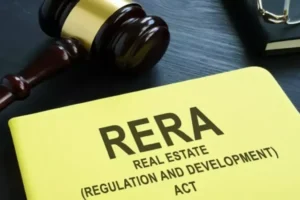Dubai’s real estate sector has embarked on a transformative journey by integrating blockchain technology into property transactions. The Dubai Land Department (DLD) recently initiated the pilot phase of the ‘Real Estate Tokenisation Project,’ marking a significant shift in property ownership and investment dynamics.
Understanding Real Estate Tokenization
Real estate tokenization involves converting property assets into digital tokens on a blockchain. This process allows properties to be divided into shares, enabling multiple investors to co-own a single asset. Such an approach democratizes property investment, making it more accessible and liquid. Unlike traditional crowdfunding, tokenization offers a structured and regulated model of ownership, enhancing transparency and security.
Dubai’s Strategic Move into Tokenization
The DLD’s initiative positions Dubai as the first real estate registration entity in the Middle East to implement tokenization of property title deeds. Launched under the Real Estate Innovation Initiative (REES), this project aligns with the Dubai Real Estate Sector Strategy 2033. The pilot phase aims to assess the feasibility and impact of tokenized real estate transactions, with insights guiding the project’s full-scale implementation.
Projected Market Impact
The DLD anticipates that real estate tokenization could account for 7% of Dubai’s total property transactions by 2033, translating to a market value of approximately AED 60 billion (USD 16 billion). This projection underscores the potential of tokenization to attract a broader spectrum of investors and enhance market liquidity.
Collaborative Efforts and Objectives
This pioneering project is a collaborative effort involving the DLD, the Dubai Virtual Assets Regulatory Authority (VARA), and the Dubai Future Foundation (DFF). The primary objectives include:
Diversifying Property Ownership: Facilitating fractional ownership to allow multiple investors to co-own properties.
Enhancing Market Liquidity: Making property transactions more fluid and accessible.
- Attracting Global Tech Firms: Positioning Dubai as a hub for virtual assets and blockchain innovation.
- Promoting Investment Awareness: Educating stakeholders about virtual asset services and products.
- Ensuring Regulatory Frameworks: Establishing guidelines to protect investors and stakeholders.
- Implications for Investors and the Real Estate Market
The integration of blockchain technology into Dubai’s real estate sector offers several advantages:
- Lower Entry Barriers: Investors can acquire fractional ownership, making high-value properties more accessible.
- Increased Transparency: Blockchain’s immutable nature ensures clear and tamper-proof transaction records.
- Enhanced Security: Digital tokens reduce the risk of fraud and unauthorized alterations.
- Operational Efficiency: Streamlined processes lead to faster transactions and reduced administrative costs.
Conclusion
Dubai’s foray into real estate tokenization signifies a pivotal shift in property investment and ownership. By embracing blockchain technology, the DLD aims to create a more inclusive, transparent, and efficient market. As the pilot phase progresses, the insights gained will be instrumental in shaping the future landscape of Dubai’s real estate sector. Investors and stakeholders should stay informed and prepared to navigate this evolving terrain.






